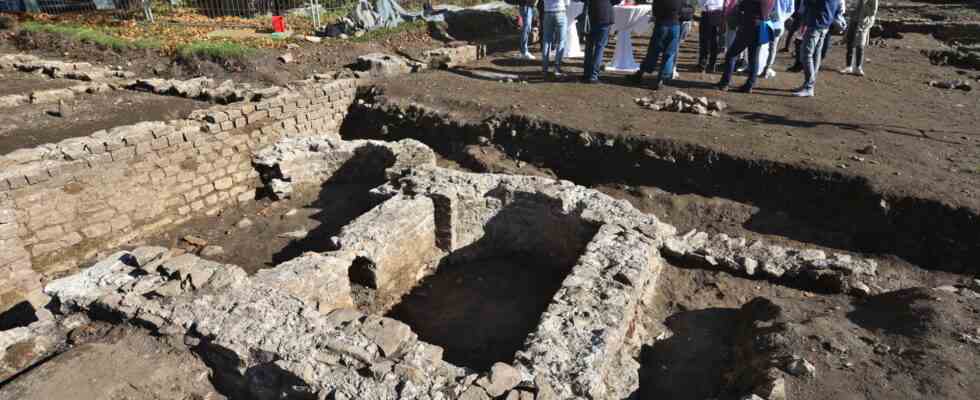Status: 10/27/2022 5:55 p.m
Houses with thermal baths and underfloor heating – the ancient Romans allowed themselves this luxury, as an excavation in the Bavarian town of Kempten shows. The uncovered house is one of the oldest in Germany.
Archaeologists have uncovered parts of a Roman house in Kempten in the Allgäu. According to the city of Kempten, in addition to intact screed floors and underfloor heating, a small private thermal baths and wall paintings came to light.
When presenting the excavation, the city reported that the remains that had come to light were among the oldest in Germany. Due to its Roman past, Kempten is more than 2000 years old, making it one of the oldest cities in Germany.
You can see the remains of the walls of a Roman residential and commercial building with a private thermal bath.
Image: Karl-Josef Hildenbrand/dpa
Excavations for more than three years
In the Allgäu city, the ancient settlement structures from Roman times have been examined for more than three years in a research project with scientists from Munich’s Ludwig-Maximilians-University (LMU) and experts from the Bavarian State Office for the Preservation of Monuments. It is about exploring the Roman town of Cambodunum, the forerunner of Kempten.
Excavations have already taken place in Cambodunum over the past two centuries. At that time, the ancient walls were followed in particular. The lower-lying settlement structures were rarely recorded, the researchers explain. Digs are now being carried out in the last antique residential building that is still undeveloped – the so-called Insula 1.
Parallels to today’s culture
The ancient city is of particular importance to archaeologists because, according to the LMU researchers, the oldest Roman city in the province of Raetia is a prime example of early Imperial city planning. Excavation director and LMU professor Salvatore Ortisi explained:
Here the development and urbanization of the areas north of the Alps by Rome can be understood in an excellent way.
According to Ortisi, these Celtic-Roman beginnings form the roots of many of our present-day cities and have decisively shaped the cultural development of southern Germany.

